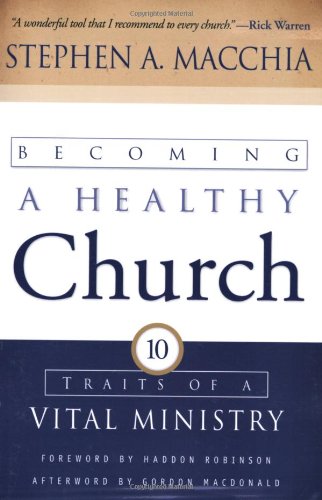
He identifies 10 different elements that church needs:
- God's Empowering Presence
- God-Exalting Worship
- Spiritual Disciplines
- Learning and Growing in Community
- A Commitment to Loving and Caring Relationships
- Servant-Leadership Development
- An Outward Focus
- Wise Administration and Accountability
- Networking with the Body of Christ
- Stewardship and Generosity
What's interesting is what is not on this list:
- Contemporary worship
- Cool music (the above doesn't mean this :)
- Young and/or hip pastor
- Cool sermons that have .ppt and shocking titles
- Etc, etc, etc.
I appreciate the fact that Macchia is focusing in on macro-level areas that find their genesis in Scripture first and then the rest flows out of that. The one area that I would have included is contextualization (perhaps Macchia would see this under his "Outward Focus" aspect). When I say contextualize I want to be careful, because this can go two ways. What I mean is taking the Gospel message and putting into today's language, analogies, using pop cultural signs. Jesus did this when He constantly says that Christ's followers are sheep and He is the shepherd. He's not literally a shepherd and people are not sheep (generally speaking :) - He's contextualizing the theme in so its understandable and compelling to the hearers.
What I don't mean by contextualization is take Scripture and contextualizing it to the era that it is being read. Scripture is not to be contextualized by culture, but culture to be contextualized by Scripture. Just because Jesus isn't literally a shepherd doesn't discount the analogy that we need to follow Jesus and trust Him like a shepherd. We can contextualize the need for justification and forgiveness all we want, but it doesn't change the fact that we need it. Just because culturally we find justification and forgiveness repugnant doesn't mean that they are not true concepts that need to be held onto - right from Scripture.
The presentation of the message can never compromise the content of the message.
 RSS Feed
RSS Feed